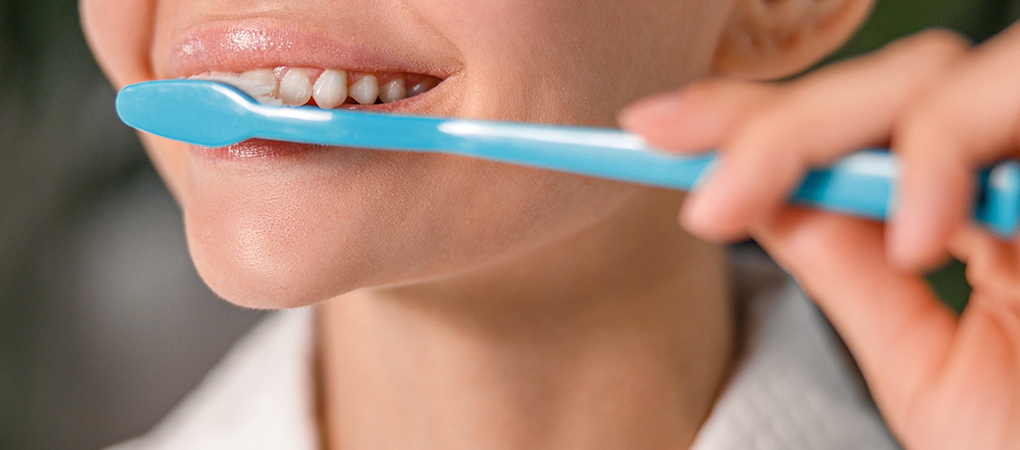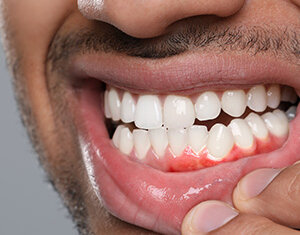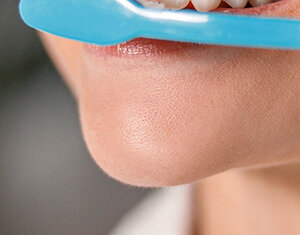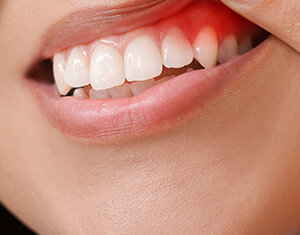Blog
Does Fluoride Toothpaste Help Sensitive Teeth?
Oral Care

Noticeable discolouration or mottling of tooth enamel may indicate a condition called dental fluorosis. While fluoride exposure hardens enamel, helping prevent decay, excessive amounts during early childhood tooth development can disrupt the mineralisation process, compromising optic appeal long-term. Read below to learn the causes, symptoms and preventative measures around fluorosis.
Defining Dental Fluorosis
Dental fluorosis refers to a cosmetic condition stemming from overexposure to fluoride treatment for teeth while they are still forming under the gums, usually between birth and eight years old. Beyond optimal topical protection against acid and sugars, surplus fluoride gets incorporated into the enamel crystals to alter optical properties, transparency, and sheen-producing opaque markings ranging from faint white flecks to confluent brown stains in more pronounced cases.
Examining Tooth Sensitivity
Dentin hypersensitivity causes tooth pain when exposed to hot, cold, acidic, or sugary substances. It happens when gums recede, exposing dentinal tubules that lead to the inner nerve centre of the tooth. Loss of enamel from acid exposure, overbrushing, or genetics can make this condition more likely. Certain teeth can be sensitive for years.
Strengthening Enamel's Acid Resistance
Fluoride helps restore minerals in enamel weakened by acid attack. It strengthens the enamel, seals tubules, and makes it more resistant to sugars and acids. Daily topical fluoride also helps prevent sensitivity by maintaining enamel integrity.
Actively Blocking Pain Signals
Fluoride can ease the remedy for tooth sensitivity by blocking pain signals in the nerves. Regular use of fluoride toothpaste twice a day can accumulate the minerals in the tubules and block sensitivity to temperature and pressure changes. Over time, tooth sensitivity should decrease or disappear as the fluoride continues to block the pain signals.
Optimal Use for Lasting Relief
To soothe sensitivity, use toothpaste like Dabur Meswak with adequate fluoride concentration and maintain a consistent oral hygiene routine. Avoid irritating foods and drinks after brushing to get the maximum benefit from fluoride. Fluoride toothpaste uses can improve dental sensitivity treatment.
When Fluorosis Originates
Dental fluorosis is a condition caused by excess fluoride intake during childhood. It alters the appearance of teeth and can cause mottling or staining, ranging from faint white lines to severe pitting and staining. Adult teeth that mineralise in childhood can also be affected.
Key Fluorosis Causes
Excess fluoride ingestion from various sources beyond the recommended geographic limit is the main cause:
- Fluoridated drinking water, particularly when used for preparing baby formula, can be beneficial for dental health.
- Dental products such as high-fluoride toothpaste and mouth rinses.
- Fluoride drops, or tablets, are supplements that can be taken to increase fluoride intake.
- Foods and drinks that are processed using water that contains fluoride.
- Excessive swallowing can occur when children brush their teeth before the age of six.
Tips for Using Fluoride Toothpaste Effectively
- Use a soft-bristled toothbrush to prevent enamel erosion
- Apply a pea-sized amount of Dabur Meswak
- Brush gently for two minutes, allowing fluoride contact
- Avoid rinsing after to retain toothpaste on surfaces
The Fluoride Effect
The fluorosis toothpaste can help reduce tooth sensitivity when used regularly and correctly. It's important to use a toothpaste with adequate fluoride concentration and allow time for the fluoride to integrate into the tubules. This cost-effective solution is available over the counter and can even alleviate severe long-term sensitivity treatment.
Does Fluoride Toothpaste Help Sensitive Teeth?
The evidence strongly supports daily fluoride toothpaste use as an effective remedy for calming sensitive teeth. The capacity of fluorosis toothpaste to both strengthen protective enamel and directly reduce nerve signal transmission offers a practical, clinically proven solution for safely alleviating sensitivity discomfort long-term.
Conclusion
Sensitive teeth can be treated with fluoride toothpaste and good brushing habits. Understanding fluoride treatment for teeth and practising proactive care can provide relief for a healthier smile. It's important to manage sensitivity early to avoid enamel loss. Consistent fluoride application can help maintain dental health and manage sensitivity.
FAQs
-
Why is Dabur Meswak toothpaste a good choice?
Dabur Meswak contains natural ingredients like Meswak extracts that have antibacterial, anti-inflammatory, and sensitivity relief properties to promote good oral hygiene.
-
What makes Dabur Meswak effective for sensitive teeth?
Along with containing fluoride for strengthening enamel and blocking nerve signals, Meswak has medicinal plant properties to fight infection actively and inflammation causing sensitivity while promoting healing.
-
Does Dabur Meswak contain fluoride?
Yes, Dabur Meswak contains an optimal amount of fluoride for protecting enamel and combatting sensitivity, decay, and gum problems while avoiding the risk of overexposure.
-
Is Meswak toothpaste safe for daily use?
Yes, Dabur Meswak is safe for twice daily brushing. Its formula is free of harmful chemicals and designed for effective yet gentle cleansing and care.
-
Can children use Dabur Meswak?
Dabur Meswak is gentle enough for use by children over 5 years, along with adults, for full family protection. Its natural formula prevents problems without sensitivity risks.























